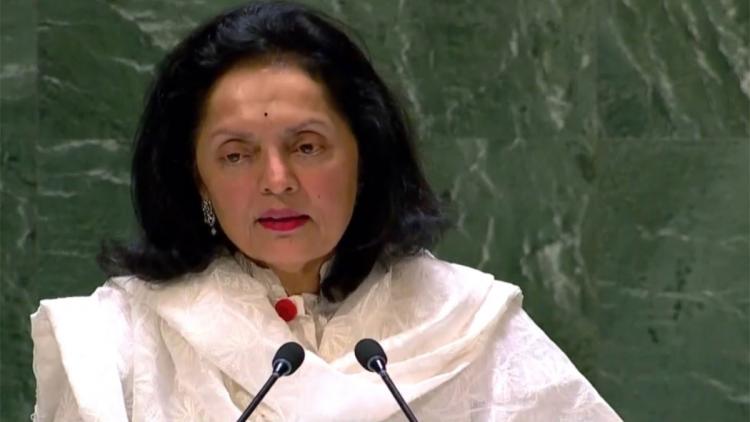India places a high priority on addressing the issue of terrorism in Afghanistan, as stated by Ruchira Kamboj, New Delhi's Permanent Representative to the UN. Speaking before the Security Council, Kamboj emphasized India's direct interest in promoting peace and stability in Afghanistan. She outlined key immediate priorities, including combating terrorism and drug trafficking, safeguarding the rights of women, children, and minorities, and advocating for the formation of an inclusive government.
Kamboj drew attention to the challenging humanitarian conditions in Afghanistan, marked by floods, earthquakes, and an influx of refugees. India has been actively involved in providing material humanitarian assistance and continuing educational scholarships for Afghan students. Collaborating with UN agencies such as UNWFP and UNODC, India reaffirmed its commitment to ongoing humanitarian efforts, emphasizing its enduring support for the Afghan people.
Addressing the Security Council, Kamboj reiterated India's stance on Kashmir, emphasizing its integral connection to Afghanistan as a contiguous neighbor. Meanwhile, the head of the UN Office for the Coordination of Humanitarian Affairs in Geneva, Ramesh Rajasinghm, highlighted the record levels of humanitarian needs in Afghanistan, exacerbated by recent natural disasters and the return of Afghan refugees from Pakistan.
During the session, Pakistan's Permanent Representative, Munir Akram, indirectly accused India of supporting the Tehreek-e-Taliban Pakistan. This veiled claim avoided triggering a response from India, sidestepping a potential exchange on each country's roles in sponsoring terrorism.
The discussions also revealed a division among Council members regarding the Taliban's rule in Afghanistan. While the US stressed the importance of women's rights for any normalization of relations with the Taliban, China advocated for unconditional negotiations with the regime, opposing any attempts to politicize women's rights in the process. The contrasting viewpoints underscored the complexity of international perspectives on Afghanistan's current situation.
(With Agency Inputs)
Read also| UNSC is like an old club, set members want to keep control: S Jaishankar
Read also| UN Security Council Vote on Gaza Resolution Delayed Again, Now Scheduled for Wednesday


















